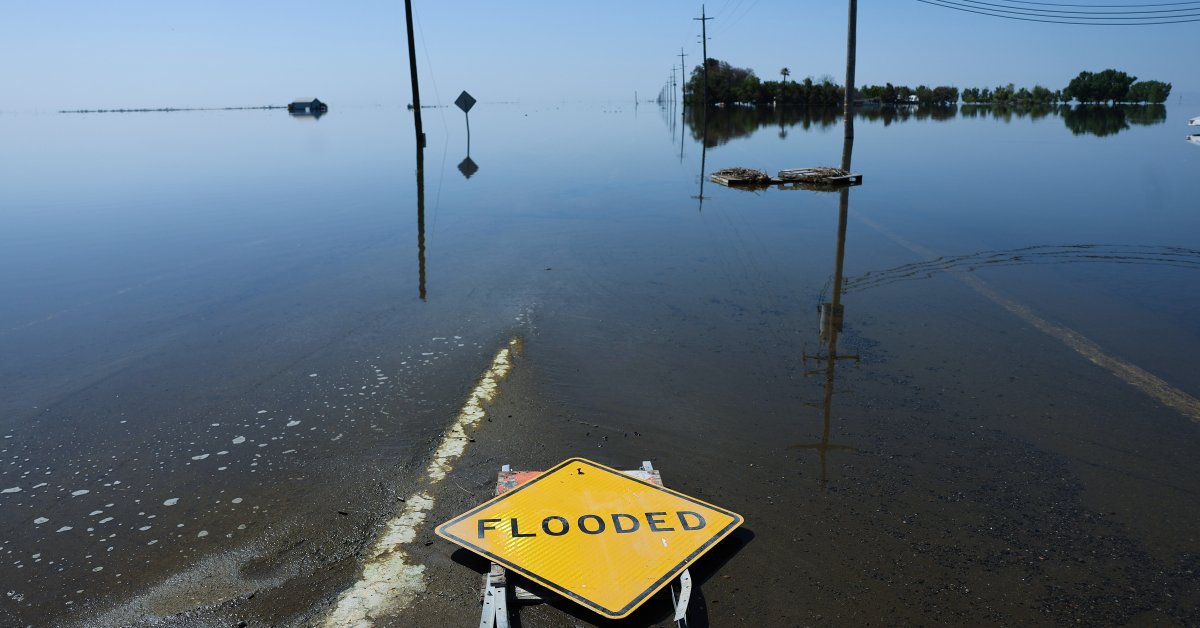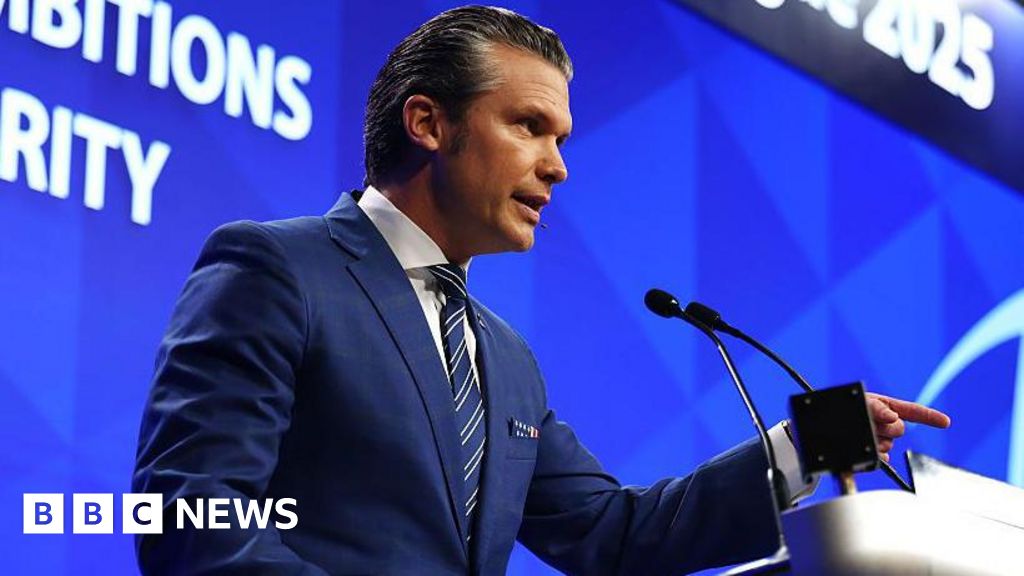Why Are 100-Year Weather Events Occurring More Frequently Than Expected? A Scientific Explanation

Welcome to your ultimate source for breaking news, trending updates, and in-depth stories from around the world. Whether it's politics, technology, entertainment, sports, or lifestyle, we bring you real-time updates that keep you informed and ahead of the curve.
Our team works tirelessly to ensure you never miss a moment. From the latest developments in global events to the most talked-about topics on social media, our news platform is designed to deliver accurate and timely information, all in one place.
Stay in the know and join thousands of readers who trust us for reliable, up-to-date content. Explore our expertly curated articles and dive deeper into the stories that matter to you. Visit Best Website now and be part of the conversation. Don't miss out on the headlines that shape our world!
Table of Contents
Why Are 100-Year Weather Events Occurring More Frequently Than Expected? A Scientific Explanation
The world is witnessing an alarming increase in the frequency of extreme weather events. What were once considered "100-year floods," "50-year droughts," or "once-in-a-generation hurricanes" are now appearing with unsettling regularity. This isn't just anecdotal; scientific evidence points to a clear culprit: climate change. But the relationship is more complex than simply saying "climate change is making things worse." Let's delve into the science behind this concerning trend.
The Shifting Baseline: Redefining "100-Year Events"
The term "100-year event" is a statistical shorthand. It refers to an event with a 1% chance of occurring in any given year. Historically, these probabilities were calculated based on relatively stable climate patterns observed over decades. However, the Earth's climate is no longer stable. The baseline against which we measure these events is shifting dramatically, leading to a higher frequency of extreme weather occurrences.
The Role of Greenhouse Gases and Global Warming:
The primary driver of this shift is the increase in greenhouse gas emissions, primarily from the burning of fossil fuels. These gases trap heat in the atmosphere, leading to global warming. This warming doesn't simply mean a gradual increase in average temperatures; it significantly alters weather patterns in several ways:
- Increased Water Vapor: A warmer atmosphere holds more water vapor, fueling more intense precipitation events and increasing the risk of flooding.
- Higher Sea Temperatures: Warmer ocean temperatures provide more energy for hurricanes and typhoons, leading to stronger and more destructive storms. [Link to NOAA data on sea surface temperatures]
- More Extreme Temperature Fluctuations: We see more frequent and intense heatwaves and cold snaps, disrupting ecosystems and agricultural practices.
- Changes in Jet Stream Patterns: A warming Arctic is disrupting the jet stream, leading to more persistent weather patterns and increased potential for extreme weather events in unexpected locations. [Link to scientific article on jet stream disruption]
Beyond Average Temperature Increases: The Amplifying Effects
It's not just about the overall increase in global average temperature. Climate change also intensifies existing weather patterns through a series of feedback loops and amplifying effects:
- Ice-Albedo Feedback: Melting ice and snow reduce the Earth's reflectivity (albedo), leading to further warming and accelerated melting.
- Sea Level Rise: Rising sea levels increase coastal vulnerability to storm surges and flooding.
- Ocean Acidification: Increased CO2 absorption by the oceans leads to acidification, harming marine ecosystems and potentially impacting weather patterns.
Improved Data and Detection: Are We Just Seeing More?
While climate change is the primary driver, improved weather monitoring and reporting technologies also contribute to a perceived increase in extreme weather events. We have a much better understanding of weather patterns now than we did a century ago, allowing us to more accurately identify and track extreme events. However, this improved data collection only partially explains the observed increase; the sheer magnitude of the events themselves points to a larger, climate-driven phenomenon.
The Future Outlook and Call to Action:
The scientific consensus is overwhelming: the increasing frequency of 100-year weather events is directly linked to human-induced climate change. Mitigating this trend requires urgent global action to reduce greenhouse gas emissions and transition to cleaner energy sources. Individuals can also play their part by adopting sustainable practices and advocating for climate-friendly policies. Understanding the science behind these changes is crucial to developing effective strategies for adaptation and mitigation in the face of increasingly frequent and intense extreme weather events. [Link to IPCC report on climate change]

Thank you for visiting our website, your trusted source for the latest updates and in-depth coverage on Why Are 100-Year Weather Events Occurring More Frequently Than Expected? A Scientific Explanation. We're committed to keeping you informed with timely and accurate information to meet your curiosity and needs.
If you have any questions, suggestions, or feedback, we'd love to hear from you. Your insights are valuable to us and help us improve to serve you better. Feel free to reach out through our contact page.
Don't forget to bookmark our website and check back regularly for the latest headlines and trending topics. See you next time, and thank you for being part of our growing community!
Featured Posts
-
 Swiatek Rybakina Transmisja Na Zywo Cwiercfinalu Roland Garros
Jun 01, 2025
Swiatek Rybakina Transmisja Na Zywo Cwiercfinalu Roland Garros
Jun 01, 2025 -
 Harvard Students Embrace Speakers Message Of Strength At Graduation Ceremony
Jun 01, 2025
Harvard Students Embrace Speakers Message Of Strength At Graduation Ceremony
Jun 01, 2025 -
 Increased Asian Defense Spending Urged Amidst Pentagons China Confrontation Posture
Jun 01, 2025
Increased Asian Defense Spending Urged Amidst Pentagons China Confrontation Posture
Jun 01, 2025 -
 Harvard Students Embrace Speakers Message Of Resilience At Graduation Ceremony
Jun 01, 2025
Harvard Students Embrace Speakers Message Of Resilience At Graduation Ceremony
Jun 01, 2025 -
 Pete Hegseth On Chinas Taiwan Ambitions Urgent Call For Regional Defense Buildup
Jun 01, 2025
Pete Hegseth On Chinas Taiwan Ambitions Urgent Call For Regional Defense Buildup
Jun 01, 2025
